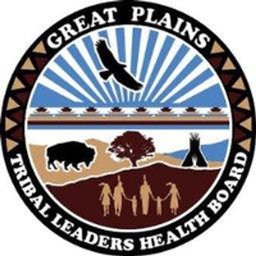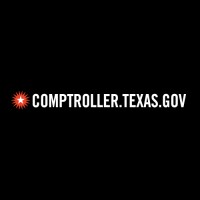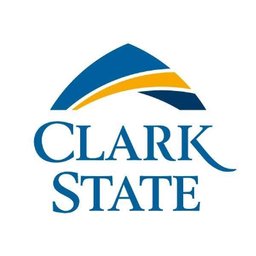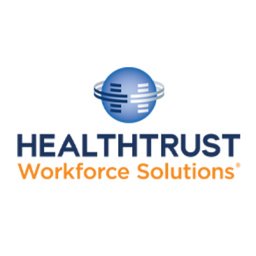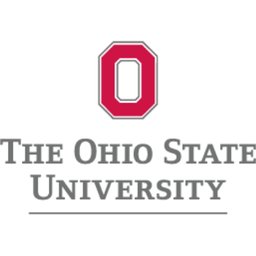Job Summary:
The Director of Training and Workforce Development is responsible for overseeing the organization's training programs. The Director ensures that training programs, such as New Employee Orientation (NEO), Annual Employee Orientation (AEO), Grow Your Own programs, First Aid, CPR, and other identified trainings, are effectively designed and delivered to enhance workforce development.
Essential Functions:
Provide leadership, direction, and supervision to the Training and Workforce Development employees.
Develop and implement strategic plans for training and workforce development in alignment with the organization’s goals.
Foster a collaborative and inclusive work environment that encourages professional growth, cultural competence, and employee engagement.
Oversee the development, implementation, and evaluation of training programs, including New Employee Orientation (NEO), Annual Employee Orientation (AEO), Grow Your Own programs, First Aid, CPR, and any other identified training needs.
Collaborate with department heads to identify training needs and ensure programs are tailored to meet organizational and departmental goals.
Ensure that training programs comply with applicable accreditation standards, regulatory requirements, and organizational policies.
Utilize data-driven approaches to assess training effectiveness, monitor progress, and provide recommendations for continuous improvement.
Work with the Training and Workforce Development Specialist to develop career development pathways and professional growth opportunities for employees.
Ensure employees have access to resources, support, and training that contribute to their well-being and success in their roles.
Support the integration of culturally relevant training, education, and resources into employee development and wellness initiatives.
Promote a culturally competent work environment that embraces diversity and inclusion.
Professional Behavior:
- Effectively plan, organize workload and schedule time to meet the demands of the position.
- Work in a cooperative and professional manner with OHC and GPTLHB staff.
- Treat Great Plains tribes and collaborators with dignity and respect.
- Utilize effective verbal and written communication skills.
- Advance personal educational development by attending training sessions and seminars as appropriate.
- Exemplify excellent customer service with tribal stakeholders, health board colleagues, program partners, service recipients, visitors and guests.
- Foster a work environment of wellness, courtesy, friendliness, helpfulness and respect.
- Relate well and work collaboratively with coworkers and all levels of staff in a professional manner.
- Consistently demonstrate respect for and acceptance of differing capabilities, cultures, gender, age, sexual orientation and/or personalities.
- Maintain and ensure organizational privacy and confidentiality.
- Handle crisis and tolerate stress professionally.
- Be self-directed and take proactive initiative to assist others.
- Resolve issues with other departments and coworkers without direct supervision if needed.
- Exercise flexibility to alter plans/routines when situations require and continue to perform without projecting stress/frustration that would adversely affect the work environment.
- Promote an alcohol, tobacco and drug-free lifestyle.
- Embrace modes of appearance and attire that reflect a professional presence.
- Adhere to GPTLHB policies and procedures.
- Other duties as assigned by the Supervisor
Requirements:
- Participates in Core Connections training and applies GPTLHB Core Connections concepts and practices in their work.
- Familiarity and/or experience working with American Indian populations and respect for and knowledge of traditional, cultural and spiritual practices of diverse American Indian communities, as well as an ability to work with other culturally and ethnically diverse populations.
- Possess the ability to resolve issues with other departments and coworkers without direct supervision.
- Able to exercise flexibility to alter plans/routines when situations require and continue to perform without projecting stress/frustration that would adversely affect the work environment.
- Ability to maintain a flexible work schedule, including evenings, weekends and overnight or extended travel as necessary.
- Ability to effectively present information in one-on-one and small group situations to community members, consumers and other employees of the organization.
- Proficiency with computer programs (Word, Excel, PowerPoint) and other Internet technologies.
- Valid driver’s license must be kept current, and certificates, credentials or licenses must be kept current and consistent with regulations required by applicable federal, state and/or grant regulations.
Supervisory Controls:
The supervisor sets the overall objectives and resources available. The employee and supervisor, in consultation, develop deadlines, projects, and work to be done.
The employee is considered an expert and is responsible for planning and carrying out the assignment, resolving most of the conflicts that arise, coordinating the work with others as necessary, and interpreting policy on their own initiative in terms of established objectives. In some assignments, the employee also determines the approach and methodology to be used. The employee keeps the supervisor informed of progress and potentially controversial matters.
Completed work is reviewed only from an overall standpoint in terms of feasibility, compatibility with other work, or effectiveness in meeting requirements or expected results.
Guidelines:
Guidelines for performing the work are scarce or of limited use. Administrative policies, precedents, laws and regulations are applicable but are stated in general terms.
The employee uses initiative and resourcefulness in deviating from traditional methods or researching trends and patterns to develop new methods, criteria, or proposed new policies.
Complexity:
The work includes varied duties requiring many different and unrelated processes and methods that are applied to a broad range of activities or substantial depth of analysis, typically for an administrative or professional field. Decisions regarding what needs to be done include major areas of uncertainty in approach, methodology, or interpretation and evaluation processes that result from such elements as continuing changes in program, technological developments, unknown phenomena, or conflicting requirements.
The work requires originating new techniques, establishing criteria, or developing new information.
Scope and Effect:
The work involves planning, developing, and carrying out vital administrative or scientific programs.
The programs are essential to the missions of the organization or affect large numbers of people on a long-term or continuing basis.
Personal Contacts:
The personal contacts are with individuals or groups from outside the organization in a moderately unstructured setting. For example, the contacts are not established on a routine basis and the purpose and extent of each contact is different.
Purpose of Contacts:
The purpose is to justify, defend, negotiate, or settle matters involving significant or controversial issues. The work usually involves active participation in conferences, meetings, hearings, or presentations involving problems or issues of considerable consequence or importance. The persons contacted typically have diverse viewpoints, goals, or objectives requiring the employee to achieve a common understanding of the problem and a satisfactory solution by convincing them, arriving at a compromise, or developing suitable alternatives.
Physical Demands:
The work requires some physical exertion, such as long periods of standing; walking over rough, uneven, or rocky surfaces; recurring bending, crouching, stooping, stretching, reaching, or similar activities; or recurring lifting of moderately heavy items. The work may require specific, but common, physical characteristics and abilities, such as above average agility and dexterity. The employee must be able to read, write, speak and hear.
Work Environment:
The environment involves everyday risks or discomforts that require normal safety precautions typical of such places as offices, meeting and training rooms, requiring use of safe work practices with office equipment, avoidance of trips and falls, observance of fire regulations and traffic signals. The work area is adequately lighted, heated, and ventilated.
Supervisory and Management Responsibility:
This position has responsibility for the performance of one or more second level supervisors or a group of complex and difficult heterogeneous positions. The employee usually possesses similar authority to that of second level supervisors except authority to act for the department head in his/her absence.
Direct Reports:
Training Specialists
Minimum Education and Experience Requirements:
Bachelor’s degree and three (3) years of progressively responsible relevant experience, or an associate’s degree and five (5) years progressively responsible experience, or a high school diploma or GED and seven (7) years of progressively responsible experience. The experience required for supervisory positions will be inclusive of at least one (1) year of supervisory/management experience.
This is a professional and/or supervisory position that requires post-secondary education and/or considerable experience. Individuals must have applicable education and/or experience applying basic principles, concepts, and methodology of a professional or administrative occupation and skill in applying this knowledge in carrying out elementary assignments, operations, or procedures, or experience performing assignments such as carrying out limited projects that involve the use of specialized complicated techniques.
Preferred Education Requirements:
Bachelor’s degree in human resources, Organizational Development, Education, Business Administration, Psychology, or a related field.
7 Years of Experience in human resources, training and development, organizational development, or a related field.
3-5 Years of Leadership or Supervisory Experience managing HR teams, training departments, or workforce development programs.
Experience with developing and implementing training programs, managing employee relations, and promoting employee engagement and wellness initiatives.
Knowledge of employment laws and regulations related to employee relations, training, and workforce development.
Compliance with our Employee Health Procedure is a condition of employment. You are required to agree that you will comply with all job-related employee health screening and immunizations prior to your first day of employment. Jobs require that you have documentation that you have completed the following immunizations prior to your first day of employment: MMR (Measles, Mumps and Rubella, Varicella (Chicken Pox), Hepatitis B, Influenza, T-dap (Tetanus - Diphtheria - Pertussis), and COVID-19 vaccination is required.
